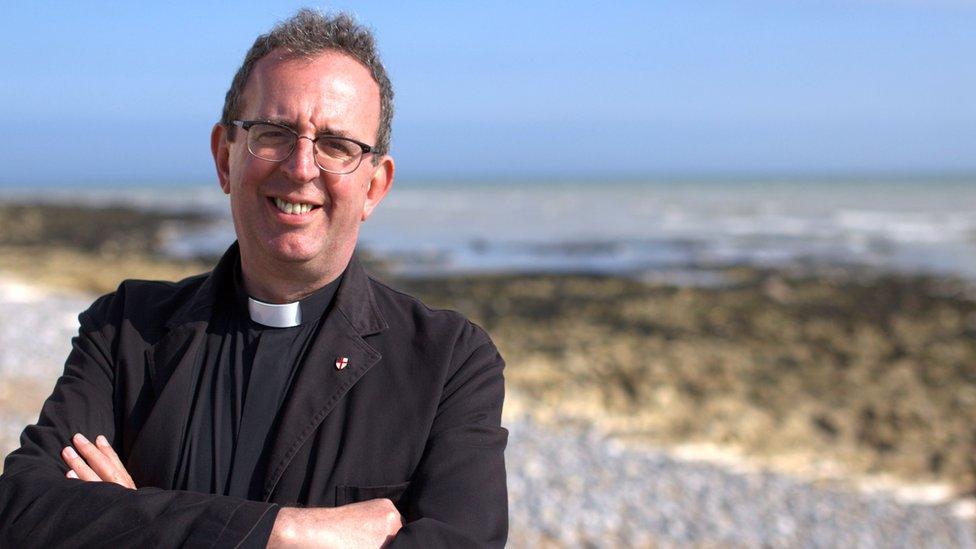Coronavirus: Coping with grief during a lockdown
- Published
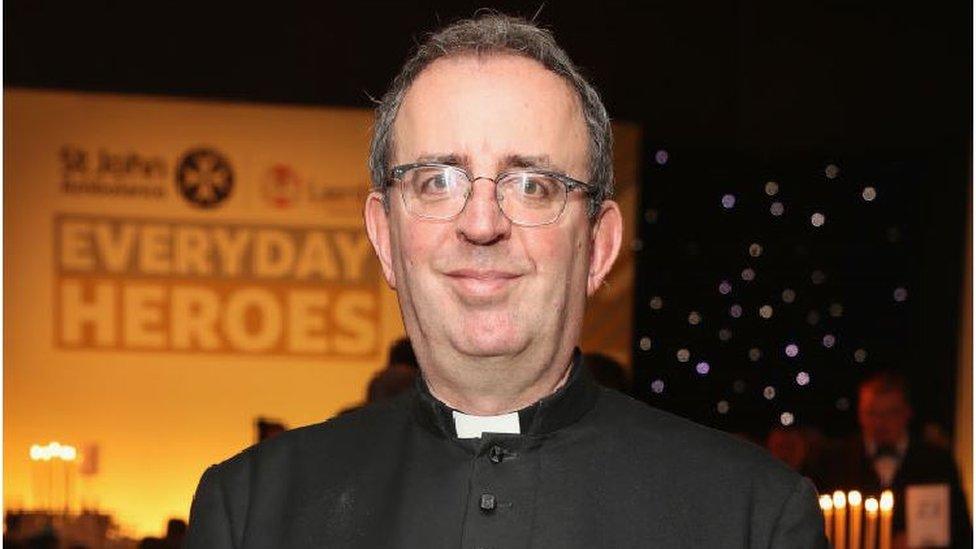
Rev Richard Coles lost his civil partner, David, in December
As the UK adjusts to life under coronavirus lockdown, those who have recently lost a loved one can find being stuck at home, unable to get out and reach friends and family, extremely difficult. So how are they coping behind closed doors?
"Fifty-eight, widowed, lonely, locked-down, straitened, and fat - but NO ONE can take my kippers."
That was the message from broadcaster and former pop star Rev Richard Coles as he marked his birthday with a picture of his breakfast, external on Twitter.
Messages of support have been pouring in for the Reverend, who lost his partner, David, in December.
Coles was the keyboard player in the 80s band The Communards and is now vicar of Finedon, Northamptonshire.
Charities say bereavement is often an "extremely lonely and isolating time", but Linda Magistris, from The Good Grief Trust, said the grief of those who are self-isolating may be made worse because of the stress and anxiety brought on by the pandemic.
Several people who lost loved ones spoke to the BBC about their own coping mechanisms.
'Trying to occupy my mind'
Shelly Daniels recently moved to Weymouth, Dorset, from Brighton to be closer to her family after her 28-year-old son James died "suddenly and unexpectedly" in November.
Ms Daniels, 54, said the lockdown meant she found herself alone after being separated geographically from her partner, who still lives in Brighton, and her daughter, who is self-isolating because of a serious health condition.
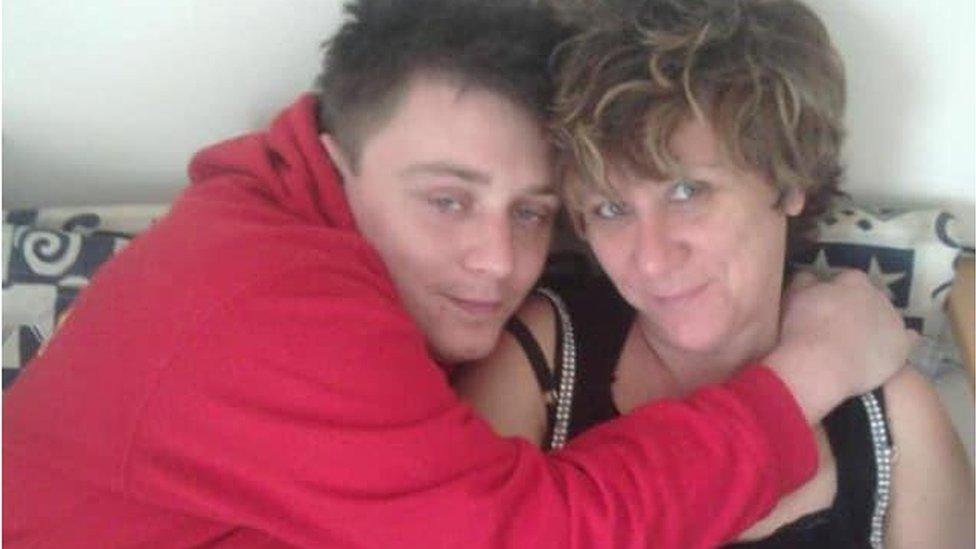
James' inquest was due to take place on 30 June but has now been delayed because of coronavirus
"It's changed my whole normal routine of what I've been doing," she said.
"[I'm] trying to do something each minute of the day to keep occupied and keep [my] mind focused, and although it's difficult I try not to dwell on what's happened and happening."
Ms Daniels said video calls with her partner several times a day had helped.
"Thank heavens for technology," she said.
"We've got all sorts of things we wouldn't have had if this had been 10 or 20 years ago."
Technology is not only helping to maintain connections with loved ones, but also linking people with support networks for bereaved people.
Through the hospice that helped her husband Darren until his death in July, Natasha Cable has become part of a WhatsApp group made up of 25 widowed people.
Mrs Cable, 45, from Ashtead, Surrey, said the group had become a lifeline for her.
She said members exchanged messages "throughout the day, just checking in on each other, any advice, some jokes to break the day up with a little bit of humour".
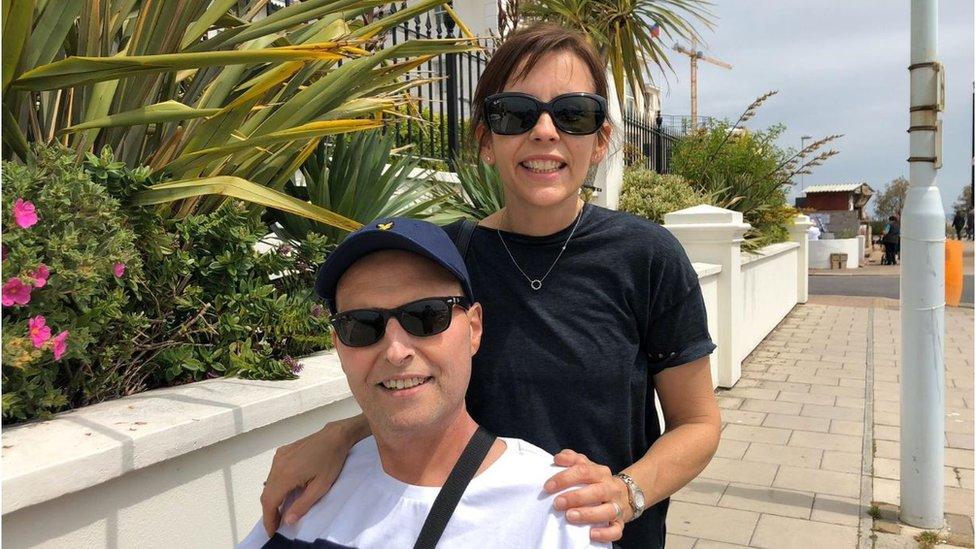
Natasha Cable's husband Darren died from bladder cancer
She said there was "no pussyfooting around", giving people freedom to speak openly, and she urged others in a similar position to find similar groups.
Mrs Cable is now self-isolating alongside their 13-year-old daughter Annalise following the government's advice to remain at home.
She added: "People are moaning about their husbands at home driving them mad and this and that - but for me I would do anything to have Darren here driving me mad."
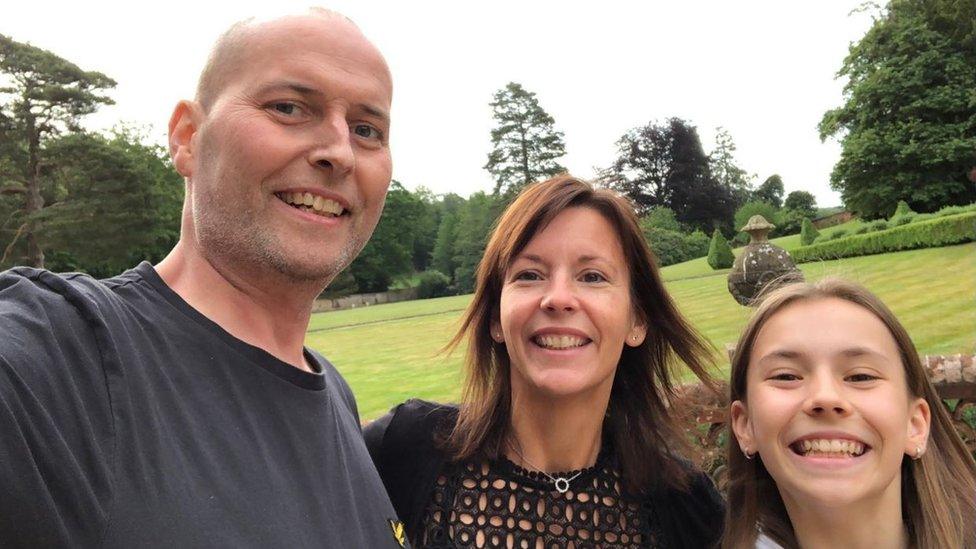
Natasha said the WhatsApp group with other widowed people was the main group she kept in touch with daily
A spokesman for charity Widowed and Young (WAY), said many of the recently bereaved people in its community network had turned to video call meet-ups for support.
"Some of our members have set up a virtual pub, the Widows' Arms, and they are holding a pub quiz tomorrow night," a spokeswoman said.
"Our members are telling us: we've got through worse than this and we are still standing.
"We will get through this too, with each other's help."
'Time to concentrate'
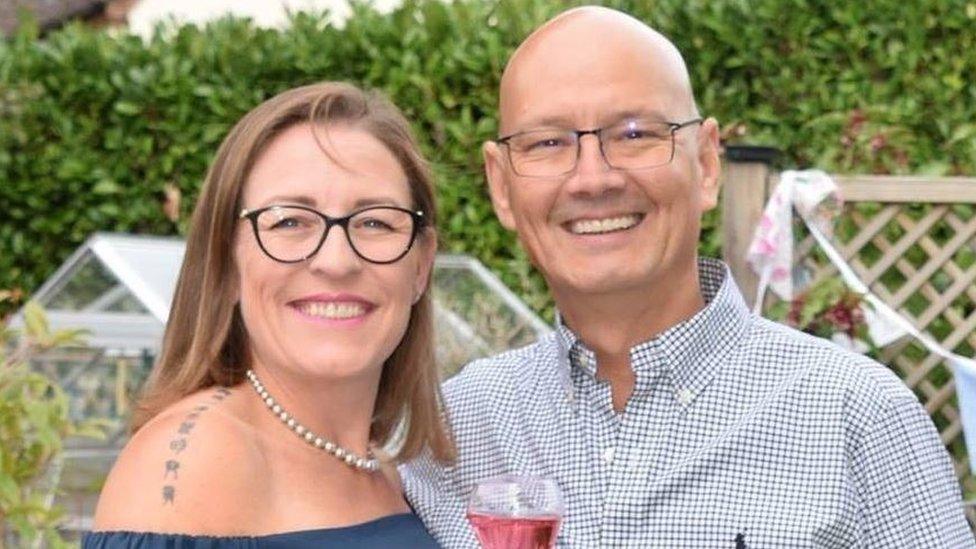
Jannine Silver said people should "reach out to anybody and everybody" to feel connected
Jannine Silver, from Midgham in Berkshire, said she had "already faced the worst time" of her life after losing her husband, Howie, 57.
"I'm using this downtime to concentrate on clearing and cleaning my house, changing things around, basically doing what I've put off for 13 months," the 47-year-old said.
After her husband's death, Mrs Silver said she isolated herself from normal life even before the lockdown, but the online groups she had found through the charity had offered her "constant support".
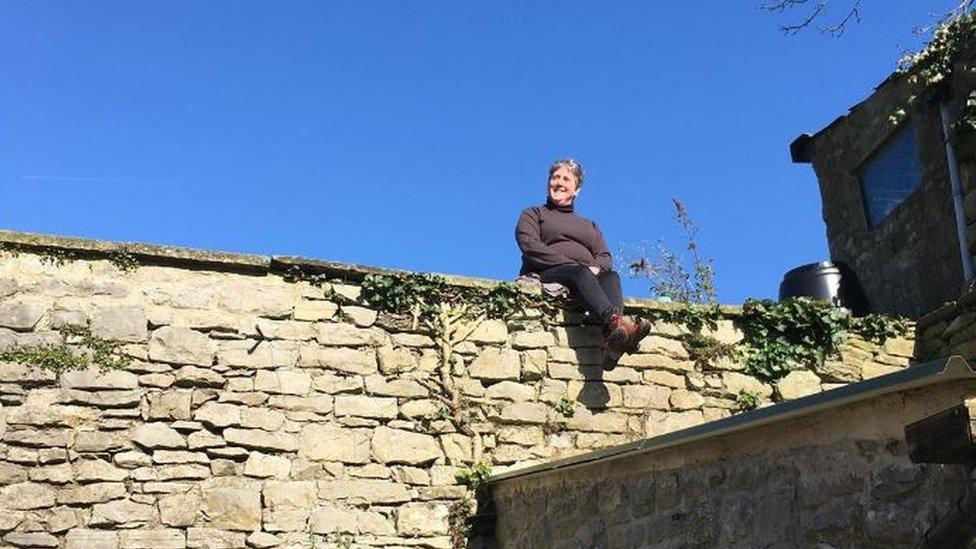
Suzanne Elvidge said the lockdown measures meant she "missed touch so much"
Suzanne Elvidge, from Tideswell in the Peak District, said being widowed and having no children meant the lockdown showed her "the true meaning of being completely alone".
The 52-year-old's husband, Tim, died in 2018 from heart complications caused by type 2 diabetes.
However, she said she had found many "coping strategies" to fall back on during the lockdown.
"Writing, Netflix, knitting, reading, running errands for a friend in total isolation, and talking to my neighbours over the wall," she said.
She said she'd also turned her hand to baking, and "lowered home-baked chocolate cake over the wall on string" to hungry neighbours.
"Be kind to yourself, accept that you will get overwhelmed because you're dealing with both grief and an unprecedented situation."

If you have been affected by any of the issues raised in this story you can contact the BBC Action Line.
- Published26 March 2020
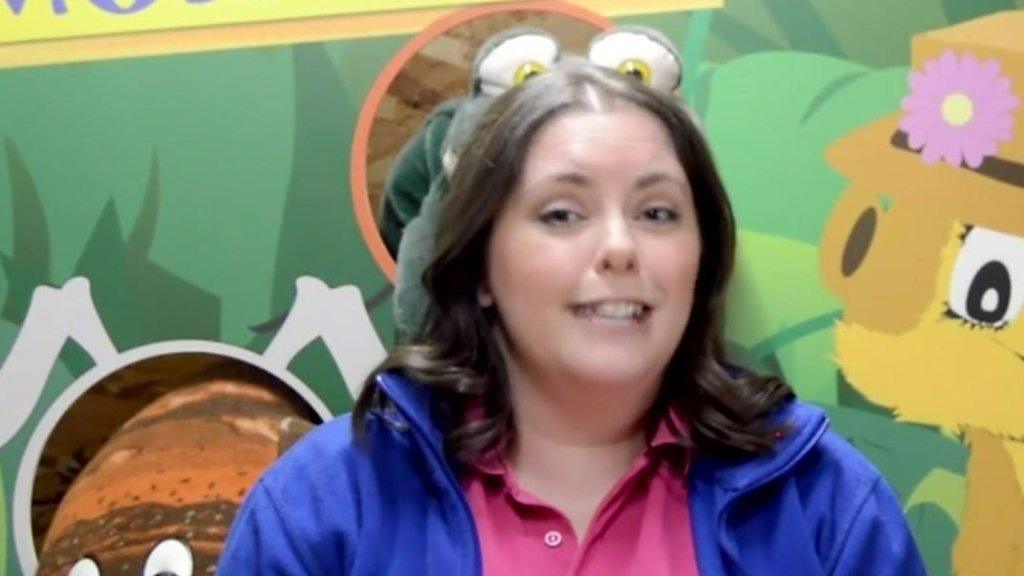
- Published22 March 2020
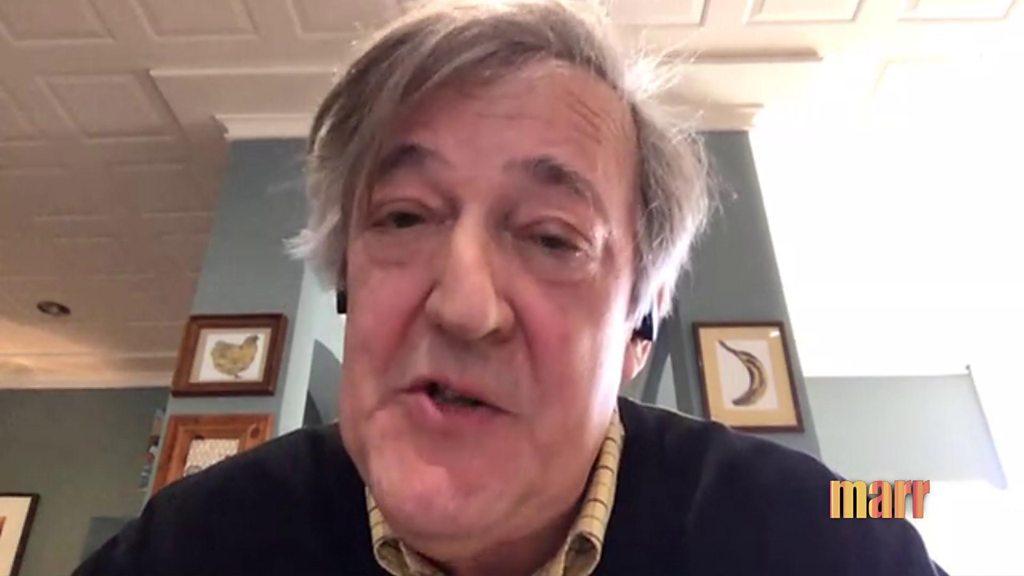
- Published16 March 2020
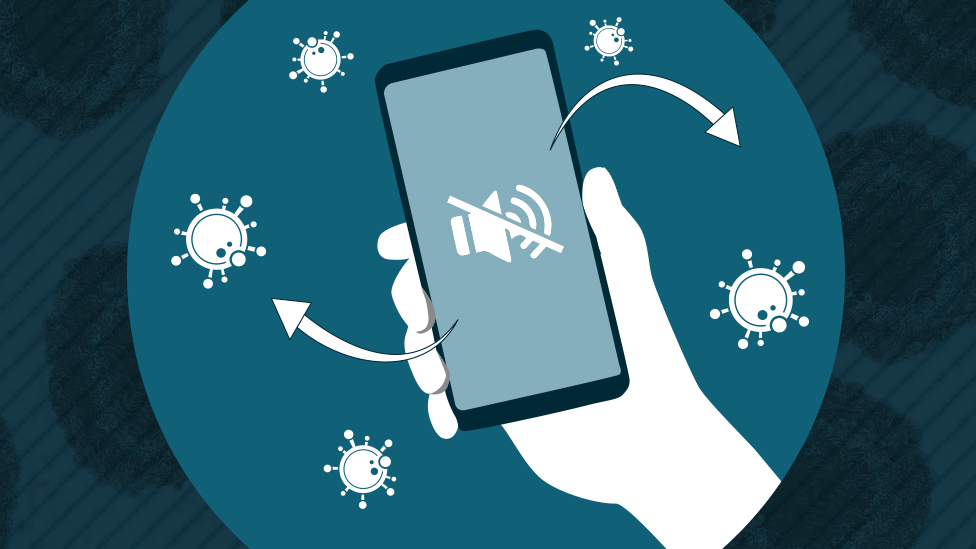
- Published17 December 2019
